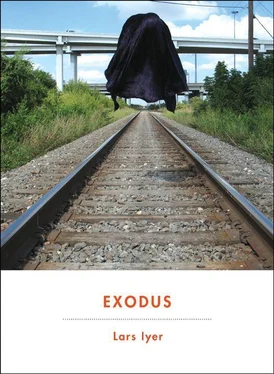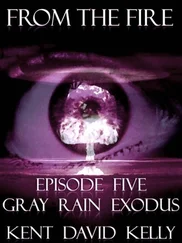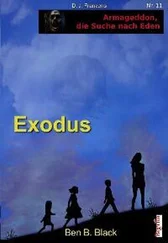And our despair? W. wondered aloud. Is that what’s left to us? Is that what remains of the good and the true? Is it in truly experiencing our despair that the path to our salvation lies?
Despair! W. took our audience through the twists and turns of The Sickness Unto Death . Of The Concept of Anxiety . He took them through crucial sections of Marx’s Capital. He conjured up a bearded Kierkegaard for our audience. A melancholy Marx !
And then W. gave me the floor. The room, abuzz with excitement during W.’s half of the presentation, fell silent. And I, too, was silent. The sound of construction from outside. The beep of a reversing vehicle.
Starting slowly, quietly, I began to extemporise on what I called the time of stupor , the time of drifting . I spoke about Tarkovsky’s Stalker , about Tarr’s Damnation . I spoke about untensed time , about time out of phase , about temporal puddles and temporal ox-bow lakes …
I spoke about Manchester as rust-zone , as sleeper . I spoke about the past and the rotting of the past. I spoke of those parts of the city that were cut off from time. I spoke of the unregenerated and the unredeemed . I spoke of the Sabbath, of the interregnum, of the great holy pause …
I spoke of attenuated despair, of grief stretched thin. I spoke of diffuse melancholia, and of the disorders of the vague. I spoke of the fear of the everyday — of cop show repeats on daytime TV, of Columbo and Magnum P.I . I spoke of stale beer and gingerbread men.
I spoke of falling to the level of the everyday. Of letting yourself fall. I spoke of watching the end credits of Neighbours not once, but twice a day. I spoke of what Perec called the infra-ordinary , and Blanchot, the infinite wearing away . I spoke of peripheries without centre, and of suburbs which never reach the city.
I spoke of nightbuses and eternal rain. I spoke of five hundred different kinds of boredom. I spoke of the wisdom of the long-term sick and the unemployed. I spoke of kebab wrappers blowing in the wind.
I spoke of empty hours and empty days. I spoke of wave-froth on the deep body of the sea. I spoke of misty thoughts yet to coalesce. I spoke of hazy skies and clouds of midges.
I spoke of being lost in time, buried in time. I spoke of time piling up like a great snowdrift. I spoke of time as an ache, as a wound, as a sigh. I spoke of space as a prayer, as a plea, as a poem.
I spoke of the nihilism of Joy Division. Of music which came from the other side of death. I spoke of rigor mortis and lockjaw. I spoke of the dancing chicken of Herzog’s Stroszek .
I spoke of the anti-gravity of dub. I spoke of the Rastafarians of Old Hulme. I spoke of polytricks and the Babylon shitstem . I spoke of the exodus and of repatrination . I quoted Prince Far-I: ‘ We moving outta Babylon/ One destination, ina Ithiopia … Ithiopia, the tyrants are falling/ Ithiopia, Britain the great is falling … ’
W. was moved, he says. I was moved. Our audience broke out into spontaneous applause. He’d thought my prophetic days had gone, W. says. He’d thought my oracle had shut up shop …
Almost all of them were working class, the Essex postgraduates, W. says. That’s what must be understood. Working class, and with only instinct driving them to Essex.
All they had was a vague sense that life had gone wrong, somehow, W. says. That life had taken a wrong turn. That what had happened here in this country was, in its entirety, a wrong turn .
Some of the Essex postgraduates, it is true, had a kind of folk-memory of working class radicalism, of Nye Bevan and Henry Hunt, and, beyond them, of the Chartists and the Diggers. But most did not. Most had only an instinct, half-awake, half-alive, that there was something wrong, and not merely with them. Most had only the sense that theirs was not merely a personal problem, that their chronic depression, their chronic fatigue, their simply not fitting in, were not merely personal failures, personal foibles, matters of idiosyncrasy or maladjustment.
In fact, there was nothing wrong with them at all : wasn’t that what the postgraduates discovered at Essex? Nothing wrong with them, and everything wrong with the world, especially Britain: wasn’t that their first lesson at the University of Essex? Wasn’t that put up on an overhead in their first lecture: There’s nothing wrong with you, and everything wrong with the world, especially Britain?
Deprogramming : that’s what the University of Essex provided. Deconditioning . It was like emerging from a cult, arriving at Essex, W. says. They needed exit counselling, the new postgraduates. They needed to be deindoctrinated!
W. thinks of those who didn’t make it to Essex. Those who never got there, who had no idea of what waited for them there. Those who didn’t even apply, and had no thought of applying. Those who applied nowhere, and would never think of making an application in their lives.
All those lost British Weils! W. says. All those lost British Kierkegaards! There may even be a lost British Rosenzweig , sitting paralysed in Doncaster, W. says. And lost British Socrateses, who, like the original, will never write a line, but who will never meet their Plato. W. sees in his mind’s eye a lost Diogenes, locked up in Strangeways for public indecency.
A lost Spinoza, W. says, working in Specsavers in Stevenage; a lost Descartes, company accountant in Earley; a lost Kant, working in Customer Services in Chipping Norton; a lost Buber, regional manager for a mobile phone company in Chalfont-St-Peter …
What might they have been had they passed through Essex! What might have happened had they been washed up on Essex’s shore!
The train southwest.
He’s been officially reprimanded for his teaching, W. says, reading his emails on his laptop. Making his students watch Damnation over and over again has no relevance to badminton ethics, he’s been told. And the students don’t want to hear any more Jandek, W. says. Actually, he doesn’t want to hear any more Jandek. He can’t bear it.
His sports science students lack a sense of the eschaton , W. says. They have no idea of the end times. How can he make them understand that there is no hope?
He misses the old days, W. says, when his philosophy students had to be forcibly restrained from throwing themselves from lecture hall windows. He misses the honest despair of philosophy seminars, W. says, when he and his students would speak of thwarted lives and strangled chances .
Philosophy should destroy you, W. says. Philosophy should break you to pieces. This is why Kierkegaard is so important. It’s what Kierkegaard understands more than anyone else!
‘ Since I was a child, I have lived under the sway of a prodigious melancholy … ’, W. reads from his notebook. Ah, what can we understand of the melancholy of Kierkegaard — of his despair and its attendant suffering, of which he said, ‘ I was never free even for a day ’? What, of the ‘ premature aging ’ of the Danish philosopher, which, he said, was caused by his melancholy? What, of his isolation, to which, he said, his melancholy condemned him — ‘ For me there was no comfort or help to be looked for in others ’?
Kierkegaard saw his melancholy as a kind of election , W. says. As a kind of calling . For it was only loneliness and misery that revealed to him what matters most. Wasn’t he to write, in the last period of his authorship, that suffering was the sanctifying mark of God? Kierkegaard thought that to accept suffering was the chance to invert its meaning, to regard it as an honour, as a source of pride. For isn’t our suffering the analogue of Christ’s on the cross? Isn’t it an echo of the abasement of the apostles, who lived in poverty and lowliness? And doesn’t it recall God’s own suffering, when He sees what His church has become? ‘ There is truly a fellowship of suffering with God ’, Kierkegaard writes. ‘ A pact of tears, which is intrinsically very beautiful ’.
Читать дальше












